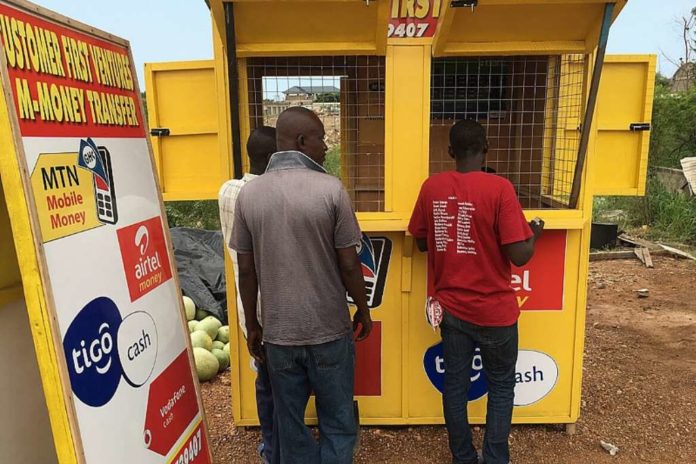MTN Mobile Money vendors across the country have been cautioned against recording in booklets details and ID numbers of clients who carry out transactions.
The telecom giant on April 2, 2021 introduced a Momo transaction system which requires clients to present valid ID cards for verification before cash withdrawals are done.
The ID numbers are required to authorize withdrawal. Though MTN has explained the new regulatory requirement is not entirely new, it noted that the move is part of efforts to curb Momo fraud in Ghana.
Speaking in an interview on Dreamz fm’s Breakfast News with Nicholas Azebire on Friday April 16, 2021, Senior Manager in Charge of Anti-Money Laundering and Compliance Godwin Tamakloe said the Momo vendors are not required to write down details including ID numbers of clients during transactions.
“Everything is now being digitized and you just have to capture details just by the phone and the system records everything for us. So if anything happens and the agent calls, we have all the information or data enough to support the agent or to explain whatever it is to the agent,” Mr Tamakloe said.
He explained that at the onset of mobile money transactions in Ghana, it was required for a client to make available a valid ID Card and also sign in a booklet which was used to record details of the client. However, the recording of clients details, the company observed posed challenges which included non-compliance by some vendors resulting in those complying and demanding ID cards losing customers.
Mr Tamakloe added that some unscrupulous persons managed to capture in pictures the records in the booklet and used same for fraudulent activities.
“So we engaged the regulator to see how we can change the way these information are captured and so we tried to digitize it instead of using the manual booklet. So this time, the agent is not supposed to record anything anywhere. Once you initiate the transaction, you would have the option to input the ID number as part of the process and then you can complete the transaction. The change here is just the method of enforcing that directive,” he added.




